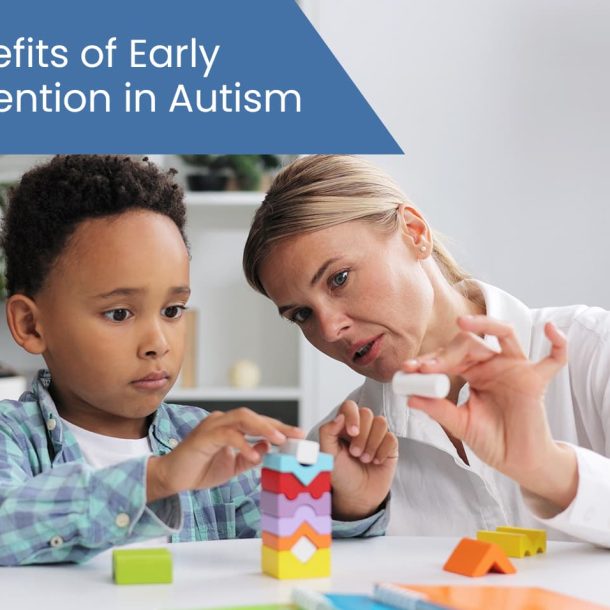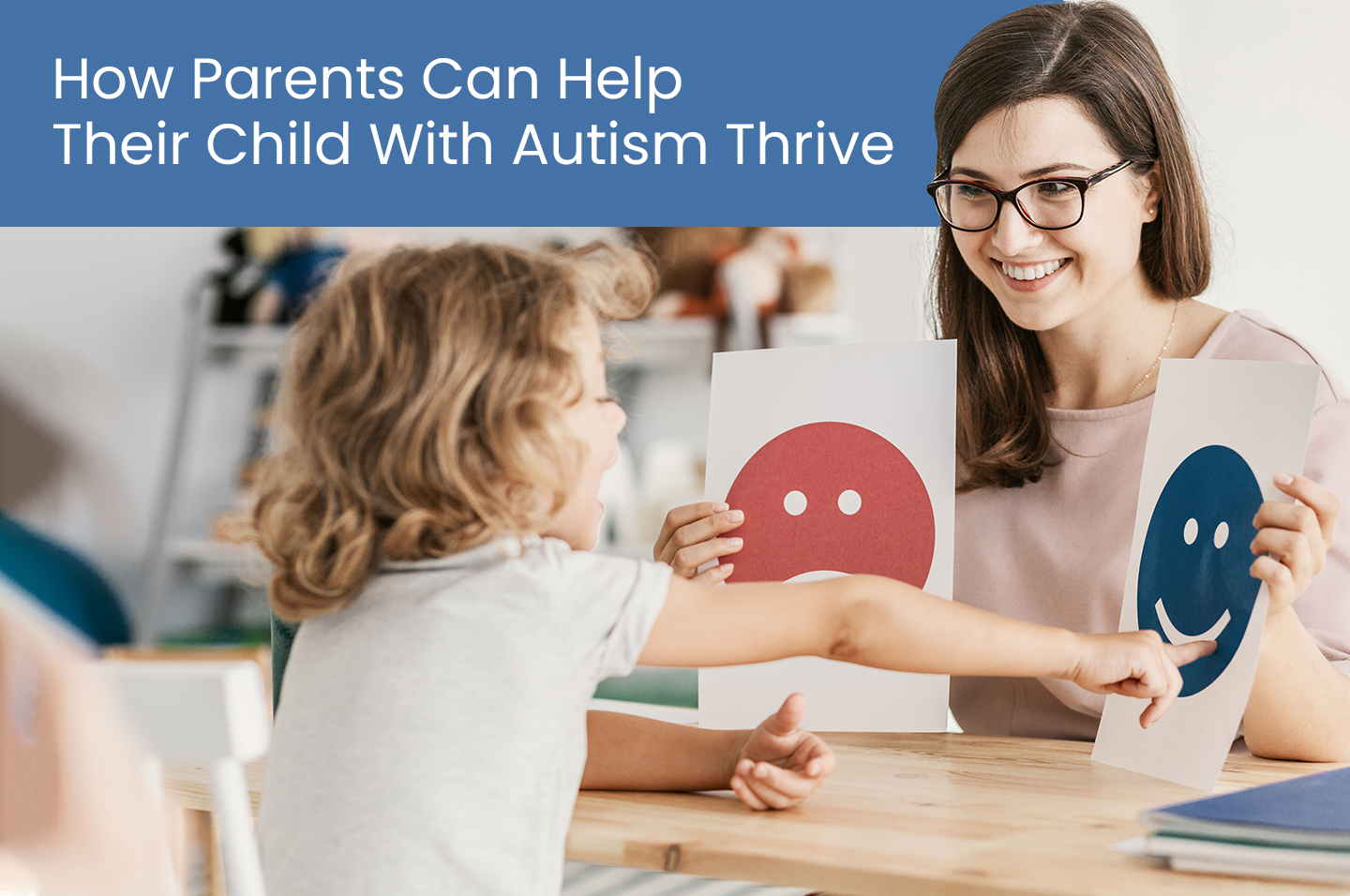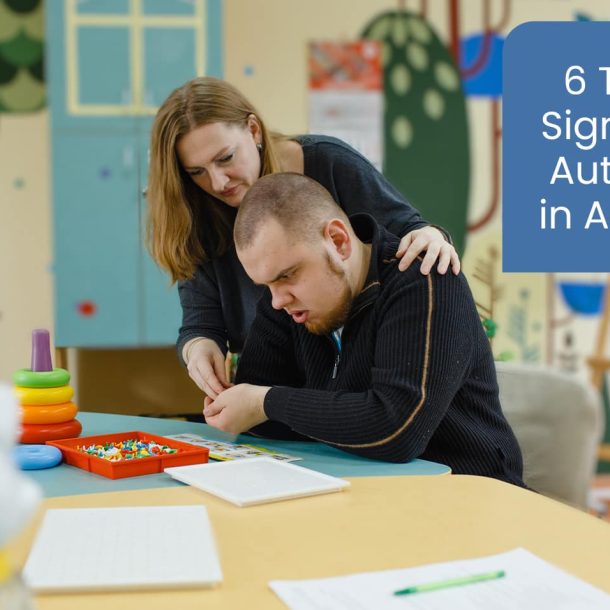
How Parents Can Help Their Child With Autism Thrive
- Home /
- How Parents Can Help Their Child With Autism Thrive

The number of children diagnosed and who receive autism therapy in Vaughan has increased over previous decades. Improvements in diagnostic tools or expanding autism’s definition may be related to the increased numbers.
In this blog, we will discuss what parents can do to help their children thrive if they have been diagnosed with autism spectrum disorder.
Autism Spectrum Disorder: What is it?
Autism spectrum disorder (ASD) consists of a developmental and neurological disorder manifesting across a spectrum depending on symptom severity. ASD was previously known simply as autism, but was changed to autism spectrum disorder with a broad range of symptoms. The symptoms are:
- Limited activities or interest.
- Difficulties interacting and communicating with others.
- Delayed or lack of language development.
- Little to no use of eye contact.
- Repetitive motor mannerisms (twirling objects, hand flipping) and language use.
- Demonstrates no interest in peer relationships.
- Persistently fixated on parts of an object.
- Diminished imaginary or spontaneous play.
Autism will differ from one individual to another. Severe symptoms may include challenges completing simple tasks, developmental delays, and an inability to speak. Less severe symptoms include difficulties demonstrating affection, social awkwardness, discomfort making eye contact, and flat affect, wherein an autistic child appears aloof, exhibits repetitive behaviours or has difficulty showing affection.
10 Ways to Help Your Child Thrive
Aside from autism treatment centre therapies and medical care, some simple everyday activities can help families with autistic children. They reduce stress and create a sense of calmness for the child. It may take some time and trying different techniques, but finding something that works makes life manageable.
1. Positive reinforcement
Like most children, those with ASD respond well to positive reinforcement. When praised for doing things well, it makes them feel good. Parents should remain specific, so their child knows what they like about their behaviour.
Look for ways to reward them with a small object (toy or sticker) or additional playtime. Also, recognize and praise your child for who they are. Celebrating a person for who they are is always essential in promoting self-confidence.
2. Find nonverbal methods of connecting
Parents can pick up on nonverbal cues that children use when communicating. Be attentive to the sounds they utter, including gestures when they are hungry, tired, or require something. Also, pay attention to facial expressions.
3. Find reasoning behind tantrums
Look for reasons behind tantrums. While it is natural to be upset when ignored or misunderstood, ASD children aren’t different in this aspect. When they have a tantrum, it can be because the parent isn’t noticing a nonverbal cue. The behaviour is a way of showing frustration and obtaining attention.
4. Note sensory sensitivities
ASD children can experience hypersensitivity to sound, light, taste, touch, and smell, while others are less sensitive to sensory input. Learn what sounds, sights, tactile sensations, and movements trigger disruptive and positive behaviours in ASD children. Look for what your child finds stressful, uncomfortable, or calming.
Once you become aware of how your child reacts, you can navigate through issues that can trigger and generate more favourable situations.
5. Establish a schedule
Autistic children thrive in highly structured environments, and schedules and routines provide the consistency they require. Establish a schedule with regular times for therapy, bedtime, meals, and school. Attempt to minimize disruptions to the routine. If change is unavoidable, prepare the child for it beforehand.
6. Remain consistent
Children with ASD find it difficult to apply what they learn in one environment to others. Generating consistency reinforces learning. Learn what your child’s therapists are incorporating and use it at home.
Some parents have therapy in several places to encourage the child to transfer learned behaviour from one setting to another. Parents must also show consistency when faced with challenging behaviour.
7. Give techniques time
Parents may try treatments, techniques, and approaches to determine what is best for their child. If one method does not produce a positive response, remain positive and avoid becoming discouraged. Move on and try something different, as it may work.
8. Establish a safety zone
Create a private space for your child to feel secure, relaxed, and safe. You may have to incorporate and set boundaries in understandable ways. Visual cues (colourful markings indicating off-limit areas) are helpful. If your child engages in self-injury or tantrums, you may have to safety-proof your house.
9. Generate a personalized autism plan
When establishing your child’s treatment for autism, ensure it is tailored to personal needs. A parent is well-acquainted with their child, and it is up to them to ensure they meet their child’s needs. This can be accomplished by establishing the following:
- Look for your child’s weaknesses and strengths.
- Note what behaviours are problematic and discover skills they lack.
- How does your child learn best (actions, visual, audio learning)?
- What activities do they enjoy? How can these things boost learning and be incorporated into treatment?
Remember that a parent’s involvement is essential, independent of the treatment plan. Parents help their children receive the most from their treatment by working with them and their treatment team, and then following through at home.
10. Find support and help
Caring for an autistic child is a demanding responsibility. Some days will make you feel stressed, overwhelmed, or discouraged. While parenting isn’t easy, raising someone with special needs provides even more significant challenges. To be the best parent possible, you must also care for yourself.
Support groups help parents meet others who are dealing with similar challenges. Parents get advice, share tips, and rely on each other for emotional support. This reduces the isolation many feel after receiving their child’s autism diagnosis.
Consider respite care for your child if you feel burned out or need a break. Sometimes, this is the best thing you can do. Respite care is beneficial for those coping with the additional stresses of ASD. In respite care, caregivers temporarily take over responsibilities, giving parents a break for a few hours to weeks.
Consider MeRT for Autism Therapy in Vaughan
Magnetic e-resonance therapy (MeRT) provides revolutionary autism therapy in Vaughan. Using specialized equipment, the Neurosync Brain Treatment Centre incorporates gentle magnetic fields to stimulate and rebalance brain activity. Our autism therapy clinic tailors an individualized plan using advanced diagnostics and treatment methods, thus increasing success rates.
To learn more about MeRT or how it can help your child, contact us at 416-473-9676 or 365-799-8438, email us at neurosyncbtc@outlook.com, or complete our online form.
Working Hours
Email: neurosyncbtc@outlook.com
Woodbridge. ON. L4L 1A6

